CSotD: It’s getting cold out there
Skip to comments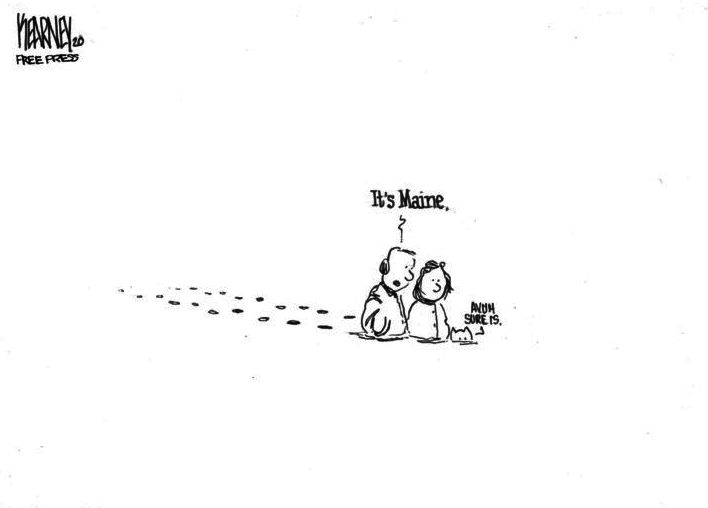 We’ll start with the easy one today: Greg Kearney (Ind) reminds me of when I lived in Maine and you didn’t dare complain about the cold, because the Yankee response was, “Well, ya live in Maine …”
We’ll start with the easy one today: Greg Kearney (Ind) reminds me of when I lived in Maine and you didn’t dare complain about the cold, because the Yankee response was, “Well, ya live in Maine …”
They weren’t expressing resignation. I was used to places where, at winter break, everyone fled to Orlando, so when I went to cover a February house fire, I figured the reason so many fire companies were called out was because nobody was in town and those few would be at work in the paper mills.
Wrong. The trucks were all fully crewed, because everyone was home enjoying a snowy holiday week.
They lived in Maine because they wanted to live in Maine.
Fancy that.
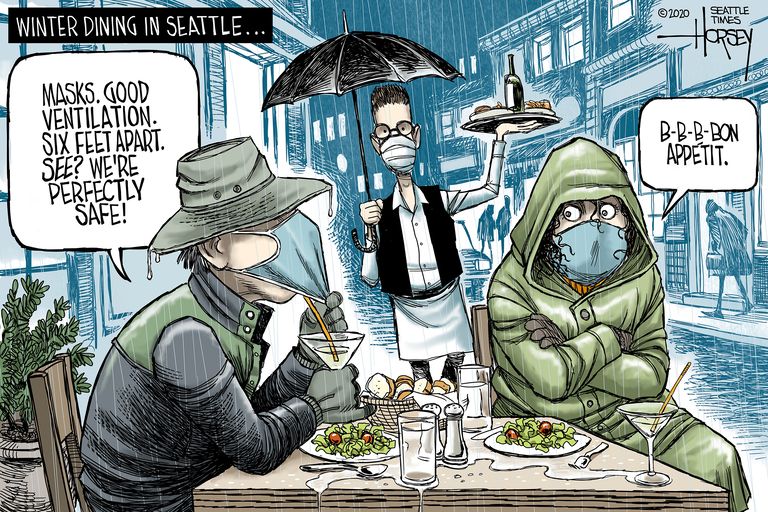
Meanwhile, on the other side of the 48, David Horsey (Seattle Times) notes that the change in weather is going to mess up the anti-Covid outdoor seating solution for restaurants.
Because it’s cold and it rains.
To which this New Englander responds that, if it’s raining, it’s not cold.
Here, we closed off a little-used street and a parking area by the village green, so that the nearby restaurants could set out tables, but we took it all down last week when we shut off the fountains so their pipes wouldn’t freeze and burst.
Seattle gets down to zero, too, but they’re so hip they do it Celsius.
This is about weather, BTW, not restaurants. I’m hoping that when our local Korean/sushi place resumes indoor seating, we see the same friendly faces we’ve known for the past decade. Right now it’s just the owner and one or two chefs doing takeout and I’ll blame Mitch if those other good folks aren’t being taken care of.
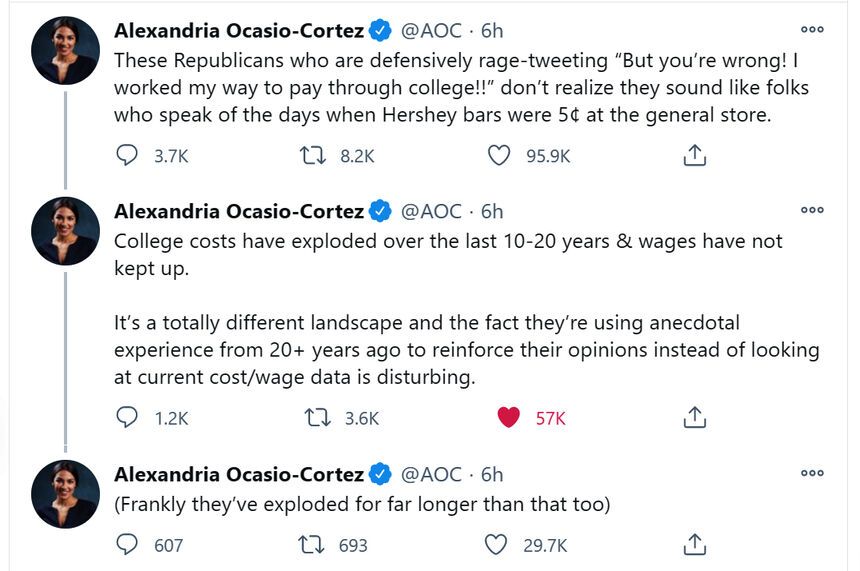
And speaking of insensitive elitists in high places, I chuckled over AOC’s righteous wrath, because her “far longer than that” reminded me that 5 cent Hershey bars were a vestige of life before the Cuban sugar embargo, which came down not 20 years ago but 60, as Eisenhower cut imports to zero in his lame duck days.
Imports had been been slashed earlier in 1960, and Hershey bars leapt from a nickel to seven cents, but then they went to a dime when the final hammer came down.
Minimum wage then was a buck an hour, which, adjusted to keep up with the economy, would be around $18 an hour today, not the $7.50 most states maintain.
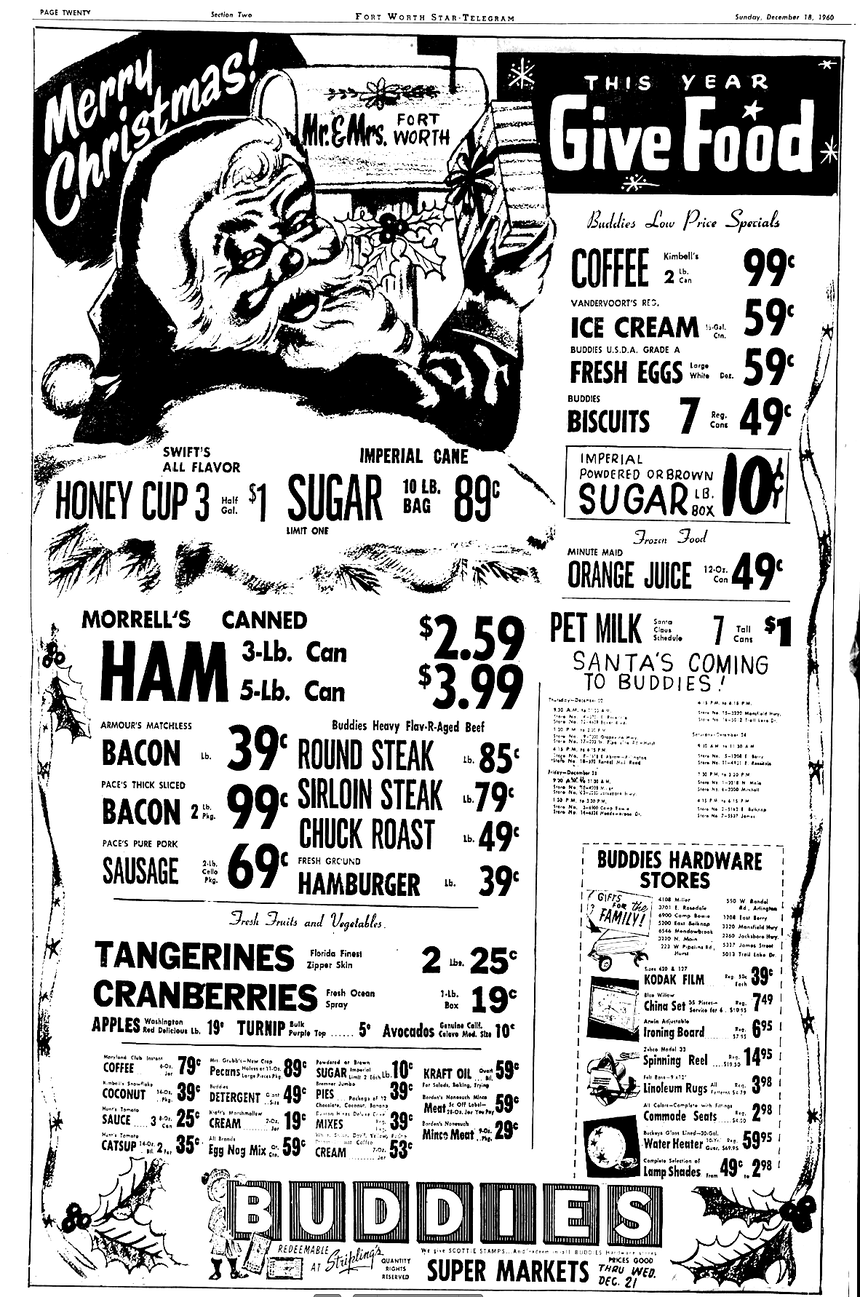
You could buy groceries back then, if you made minimum wage …

… and you didn’t have to be much more wealthy to buy a house.
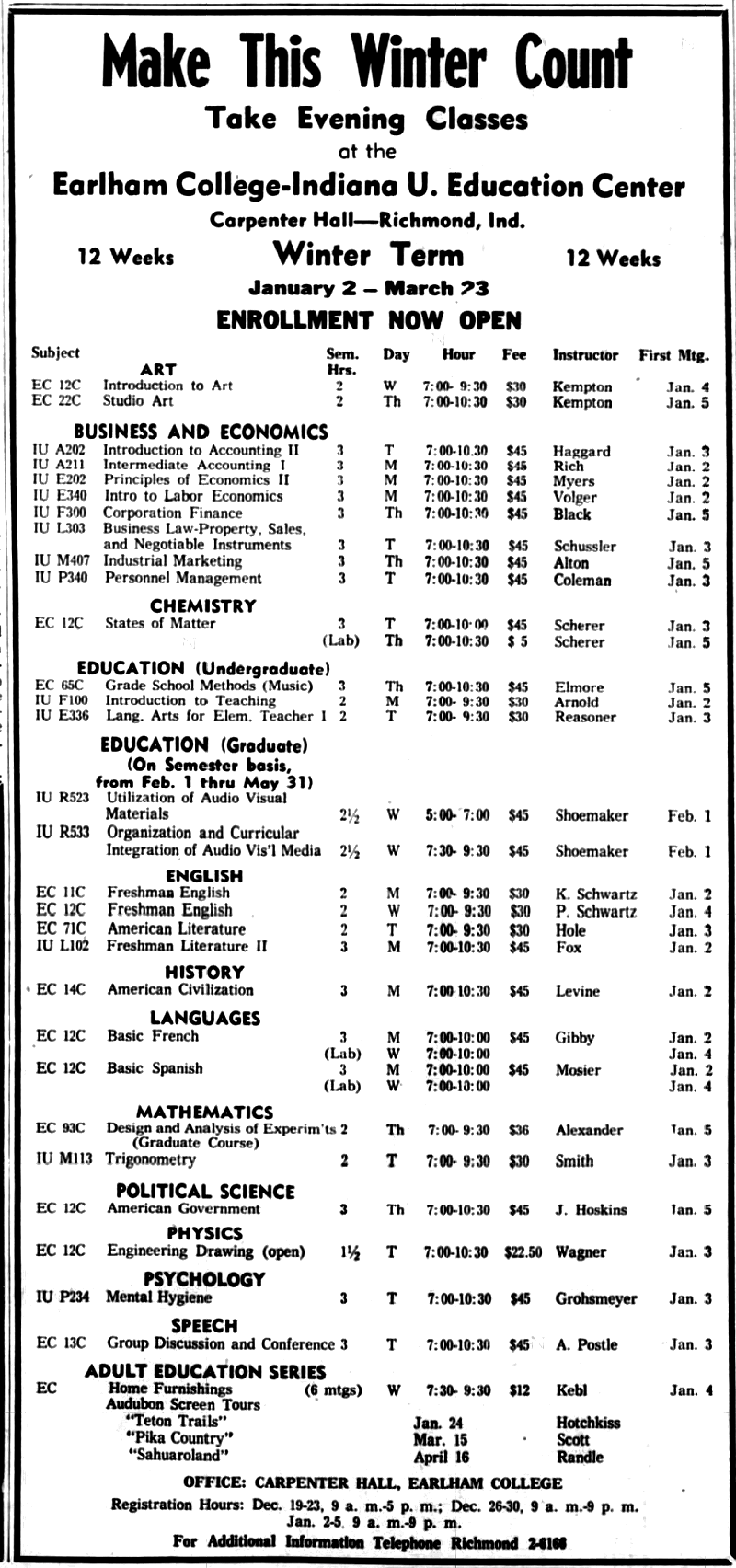
While three credit hours of college cost $45.
So, yeah, you worked your way through college, pal.
And candy bars were a nickel.
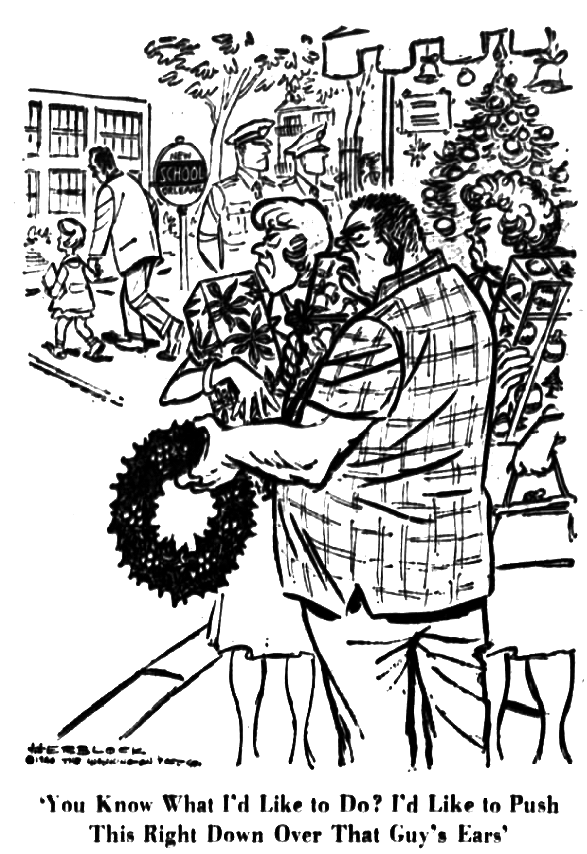
And you hated those damn liberals who sent their kids to integrated schools.
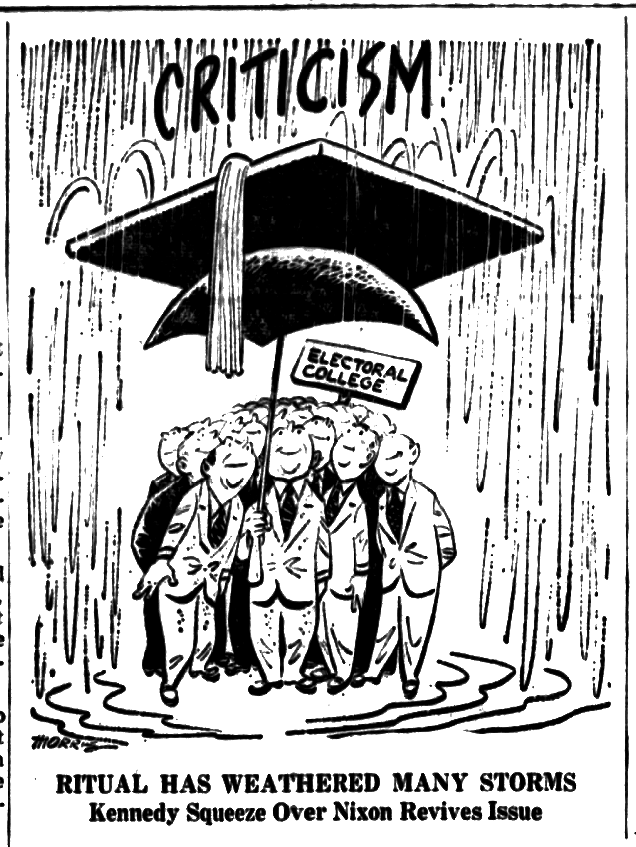
But at least you got right down to work solving this issue, right?
It doesn’t matter whether it was 20 years or 60 years, if you never made an effort to improve things.
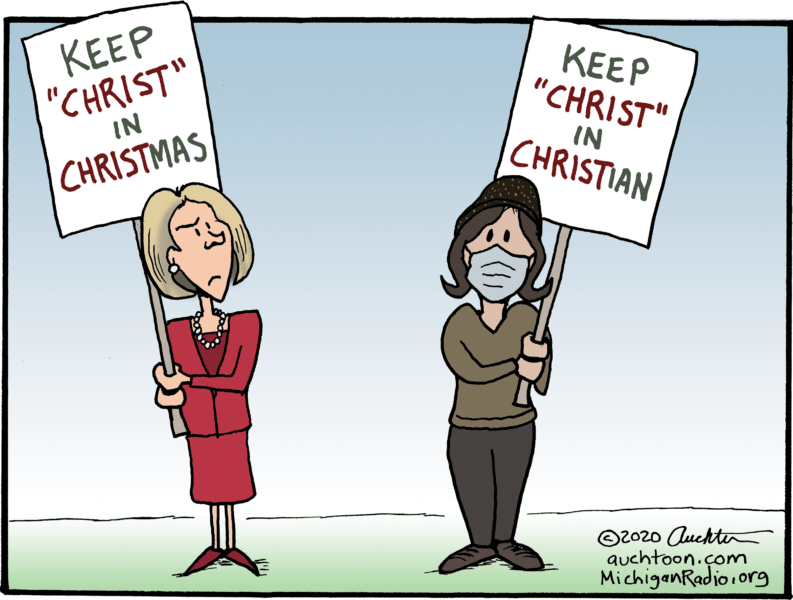
F’rinstance, when I was poking around in 1960 newspapers, I found an ad from a furniture store imploring us to keep the Christ in Christmas, which fits in with this current-day John Auchter (Michigan Radio) cartoon, in which he offers a challenge to the whited sepulchres who have been with us always.
Which fits in with the combination of wreath and wrath in that Herblock cartoon, the difference being that Auchter offers a suggestion while Herblock was more direct in noting the hypocrisy.
Bonus commentary: Note who’s wearing a mask and who isn’t.

Easier to see that in Clay Bennett (CTFP)‘s piece, which is less about the masks themselves as about the lack of leadership in this pandemic, and less about that than about the toxic lack of empathy we’ve been enduring.
At least hereabouts, the anti-maskers are a loud and annoying but small minority. I see more people masked in silly situations — walking along a country road with nobody else within a half mile — than unmasked in stores.
Meanwhile, we’re going to have to adjust to going from a president fundamentally incapable of understanding anyone else’s pain to a president whose sympathetic personality is central to his identity.
Which makes those Georgia Senate races that much more critical, because not only is Mitch sticking around to block progress, but his indifference seems calculated and deliberate, not merely a regrettable accident of his psyche.

Nor should we sit back too comfortably criticizing either of them. Stephen Collins (Guardian) offers an unflattering view of what the rest of us have let ourselves become.
I’m not absolving myself: I’m much more of a jerk on line than I am in person, and, if you count “meta-snark” as Collins does, I think we all are.
Or, at least, I hope we are, for the sake of those who have to deal with us in three dimensions.
But it does drift into our real lives. Someone recently set out some sidewalk chalk on a parking lot in our park, inviting people to make designs, and the block of asphalt quickly filled with snark. Even the lone “Jesus Saves” was quickly amended with “Green Stamps.”
I suspect the original giver had hoped for pictures of butterflies, but here we are.
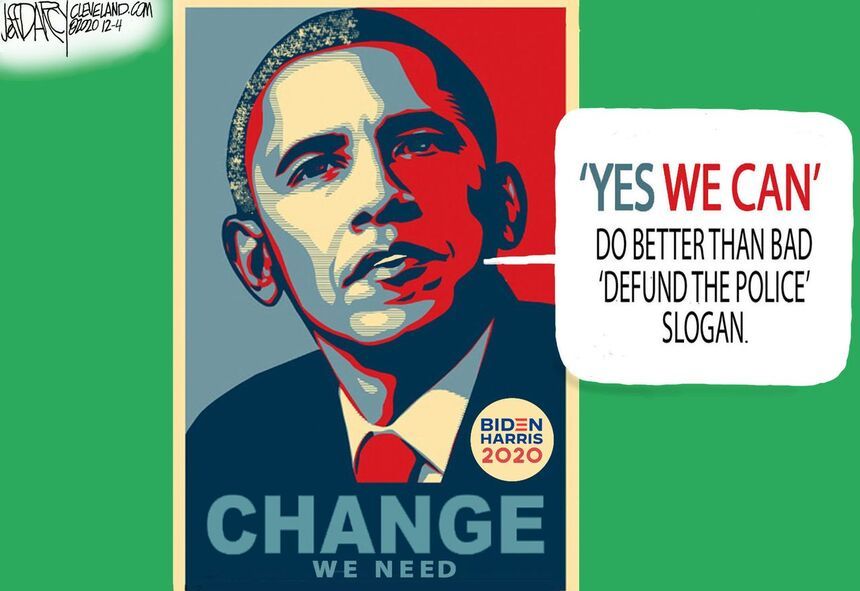
Jeff Darcy (Cleveland.com) seconds Obama’s remarks in a recent interview, in which he said that those who, justifiably, want major reforms in law enforcement would do better with a slogan that doesn’t turn people off.
But if you instead say, ‘let’s reform the police department,’ so that everyone’s being treated fairly, divert young people from getting into crime, and if there’s a homeless guy, can maybe we send a mental health worker there instead of an armed unit … suddenly a whole bunch of folks who might not otherwise listen to you are listening to you.
Predictably, he’s getting a raft of pushback from people who apparently would rather appear righteous than be effective.
We praise John Lewis, but we don’t want to follow his example.
Granted, Obama didn’t make all the changes we’d hoped for. As Wanda Sykes said, “He went to Harvard, not Hogwarts.”
But perhaps we should look inward for some of the blame.
Comments 13
Comments are closed.